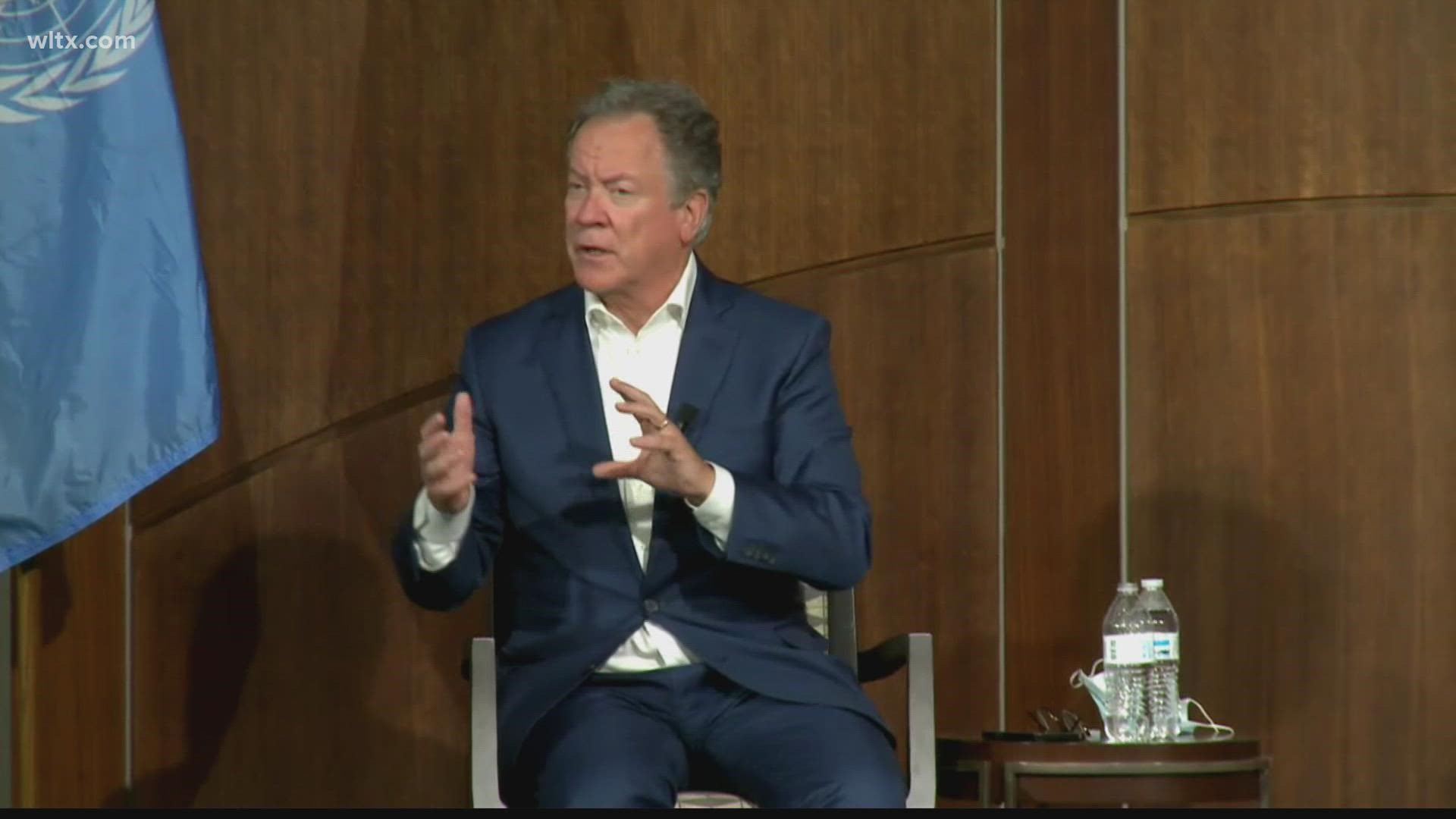COLUMBIA, S.C. — The University of South Carolina hosted a seminar titled “Information Saves Lives: A Forum on Disinformation, Media Freedom and Hunger” on Friday morning.
USC alumni and ABC News correspondent Kenneth Moton moderated a panel that included former South Carolina Governor David Beasley, who now is the Executive Director of the United Nations World Food Programme and recipient of the 2020 Nobel Peace Prize; Audrey Azoulay, director general of United Nations Educational, Scientific and Cultural Organization (UNESCO); and Interim President of USC Harris Pastides.
Other speakers, via recorded message or live Zoom, included Maria Ressa, founder and co-CEO of Rappler, a Philippine news site that challenges President Rodrigo Duterte's attacks on the press; and Glenn Smith, a member of the Charleston Post and Courier team that won the 2015 Pulitzer Prize for a series on domestic violence in South Carolina.
The discussion focused on the importance of a free press as a way to help solve global issues (such as pandemics and hunger) and how transparency and training can help social media become a more trusted source of information.
Beasley told of his organization’s work feeding refugees in places such as Ethiopia and Haiti where the supply lines bringing in food are often also used as transport for journalists to the scene in order to report what’s going on to the rest of the world. On more than one occasion, Beasley said he has had to turn to the leader of a country or warring faction and tell them that if his supply lines remain compromised or if aid workers are continued to be harassed, kidnapped or killed, he will resort to using social media to reach out to reporters and influencers to tell his story.
The message: Transparent, investigative journalism does have an impact.
Glenn Smith, investigative reporter for the Post & Courier in Charleston, SC, pointed out that the series his team wrote – Till Death Do Us Part – about domestic violence did lead to a governor’s task force, new domestic violence laws and a partial gun ban for violent offenders.
Azoulay noted in 2021, so far, 42 journalists around the world have been murdered while trying to do their job. Journalists are targeted on social media and female journalists are more prone to social media and actual physical attacks while reporting. UNESCO has launched a global legal defense fund for journalists under attack and Azoulay believes that one way journalists can continue to report the news independently and transparently is to possibly collaborate, thereby creating a network of support and information.
Pastides related a story of how, when he first arrived at the University, he arranged for newspapers to be delivered to each campus dorm room so that USC students could be informed on local and global issues. The students didn’t read the papers and the papers remained untouched. When he asked a group of students how did they get their news and one brought out a cell phone and said “here, I read the news here.” When Pastides asked what was the source of the news on the iPhone, the student said he didn’t get the news, the news was sent to him over social media.
Pastides said today’s students want an independent source of journalism that does not have to rely on corporate money -- and therefore be unduly influenced or biased in coverage. Azoulay and Beasley agreed that work has to be done to undo -- or set rules to control -- bias on social media platforms such as Facebook and Twitter.
Beasley, talking to the audience of journalism students, said young people can have an impact on the world through social media – if discourse can be handled constructively, with honor and respect.
It was also announced the School of Journalism and Mass Communications, upon approval of the University, will install an UNESCO Chair within the department that will be able to track and analyze data related to media.

